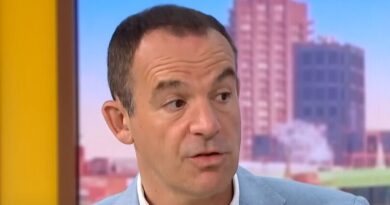People born in these years can still get DWP £300 Winter Fuel Payment | Personal Finance | Finance
The Winter Fuel Allowance being axed for most state pensioners this year has been widely documented, as new Labour Chancellor Rachel Reeves has come under fire for the move from the likes of Martin Lewis as well as rival MPs.
But there is still a way for pensioners born in these years to claim the Winter Fuel Payments of up to £300 off your energy bills this winter, the government has urged.
If you were born in any year before September 23, 1958, you could still get a £200 or £300 payment for your heating bills this coming winter.
Those who are still eligible for the money will get a letter in October or November 2024 informing them how much they will get, depending on the year you were born.
The amount you’ll get is based on when you were born and your circumstances between 16 and 22 September 2024. This is called the ‘qualifying week’.
The government says you will get: “£200 if you were born between 23 September 1944 and 22 September 1958. £300 if you were born before 23 September 1944.
“You can get a Winter Fuel Payment for Winter 2024 to 2025 if you were born before 23 September 1958.”
But, after a change to eligibility implemented by Rachel Reeves, you will also need to meet the following criteria.
You must also live in England or Wales and get one of the following: Pension Credit; Universal Credit; income-related Employment and Support Allowance (ESA); income-based Jobseeker’s Allowance (JSA); or Income Support.
Thousands of state pensioners on Pension Credit are being migrated to Universal Credit this year by the DWP and are being urged to check they will still qualify for Winter Fuel Payments.
The change of eligibility rules has been panned by many, with money expert Martin Lewis calling the new rules ‘too narrow’.
He said: “Government must rethink Winter Fuel Payments or almost ALL pensioners will need to find £100s more than last winter. While energy will cost less than during last winter’s crisis time, the reduction in rates only equates to a drop of roughly £100 over the six winter months for a household with typical usage. Yet specific pensioner energy support has dropped by far more.”





